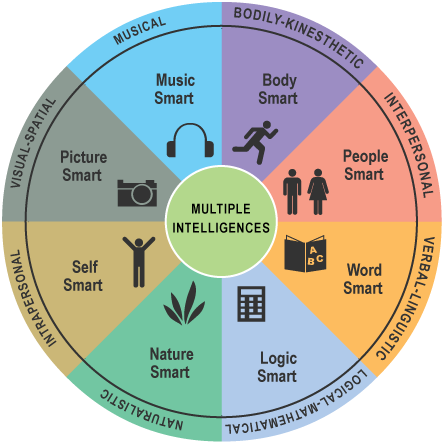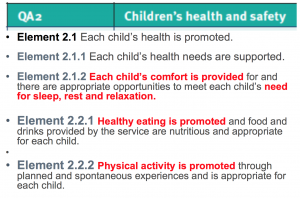When it comes to education at any level, we often see great emphasis placed on two areas of intelligence – verbal or English and maths. Intelligence quotient (IQ) tests and many academic tests predominantly measure aptitude in these areas. While we believe in the importance of these areas, we are also passionate about the idea of each person having multiple intelligences’ and that each one of these areas should be nurtured in early childhood education and beyond.
The term ‘multiple intelligences’ refers to a theory by American developmental psychologist Howard Gardner, who proposed that there are eight kinds of intelligence and of course we each possess skills within these. The eight areas Dr Gardner identified are:
Musical – a great understanding of music and often enjoy singing or tapping away
Linguistic – talented when it comes to words. These children may enjoy reading, writing and telling stories
Logical-mathematical – ability in maths and patterns. Skilled in strategy games
Bodily-kinesthetic – great physical ability when it comes to sports and expressing oneself physically
Spatial – often think visually and have well-developed artistic ability
Intrapersonal – understanding of their own emotions and desires with the ability to be self-motivated
Interpersonal – perceptive and leaders among peers with exceptional communication skills and ability to understand the feelings of others
Naturalist – a natural aptitude for recognising and classifying elements in nature, from animals to plants
Here are some really great links that offer comprehensive information on how to identify where one’s strengths lie when it comes to these seven areas, as well as supporting and opposing theories and the eights type of intelligence that Dr Gardner later identified: ‘naturalist’, referring to an ability to recognise elements in nature.
LINKS:
http://childdevelopmentinfo.com/learning/multiple_intelligences/
http://www.examiner.com/article/what-are-multiple-intelligences
http://www.earlychildhoodnews.com/earlychildhood/article_view.aspx?ArticleID=251
http://www.professorlamp.com/ed/TAG/7_Intelligences.html
As you can see, each child can fit into many of these intelligence categories to varying degrees. This broader view of intelligence equips educators and parents alike with the ability to teach in a way that can enhance these areas and allow children to blossom in the areas they are naturally destined to excel in.
Visit the Bonkers Beat Facebook page and share your ideas when it comes to educational techniques that focus one or more particular areas – we’d love to hear from you.




